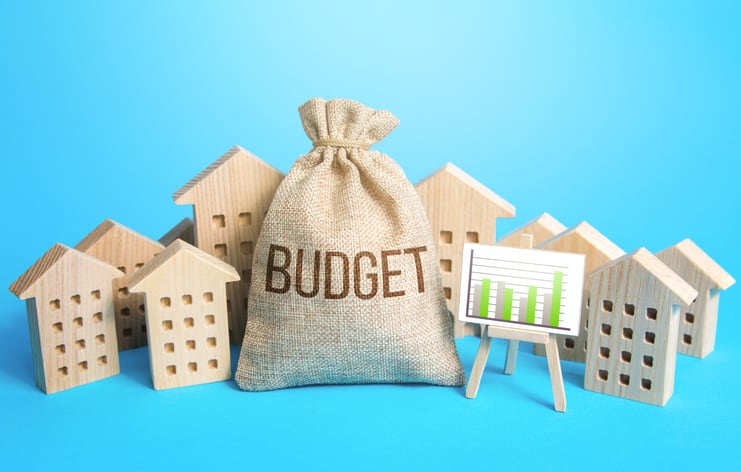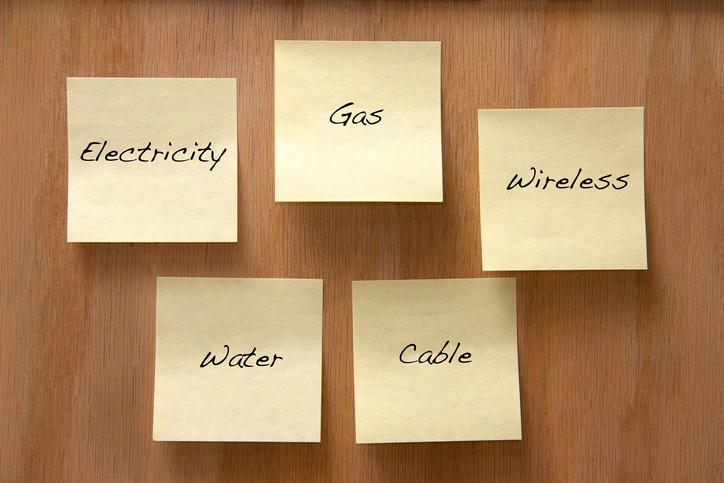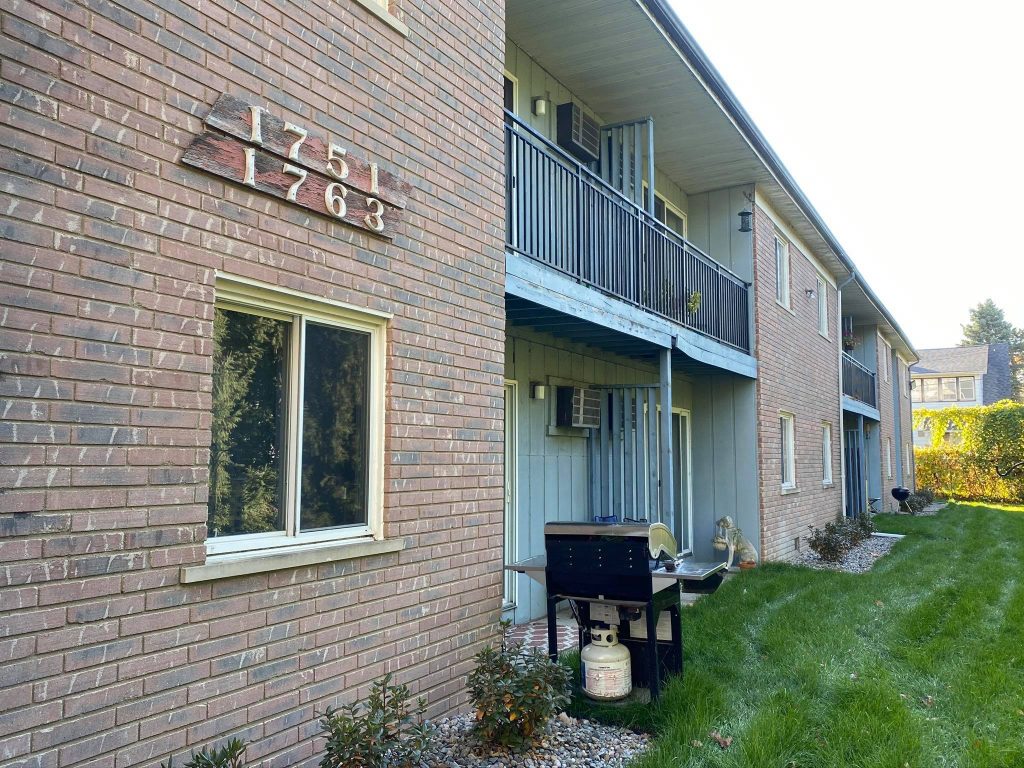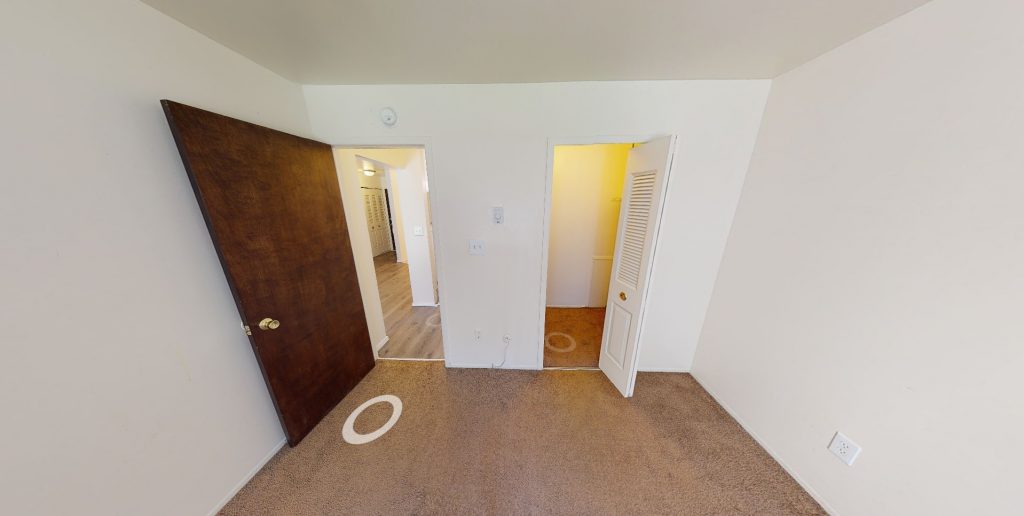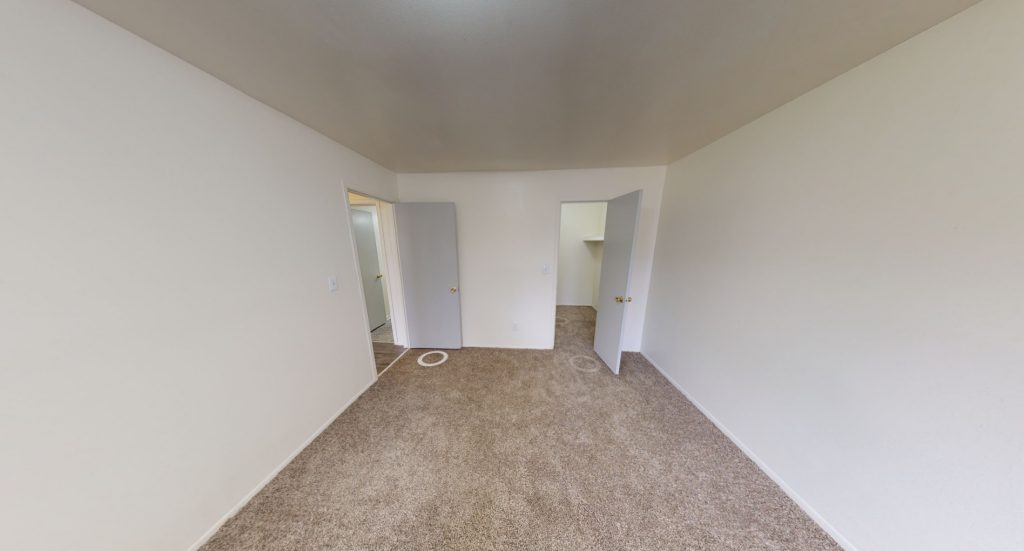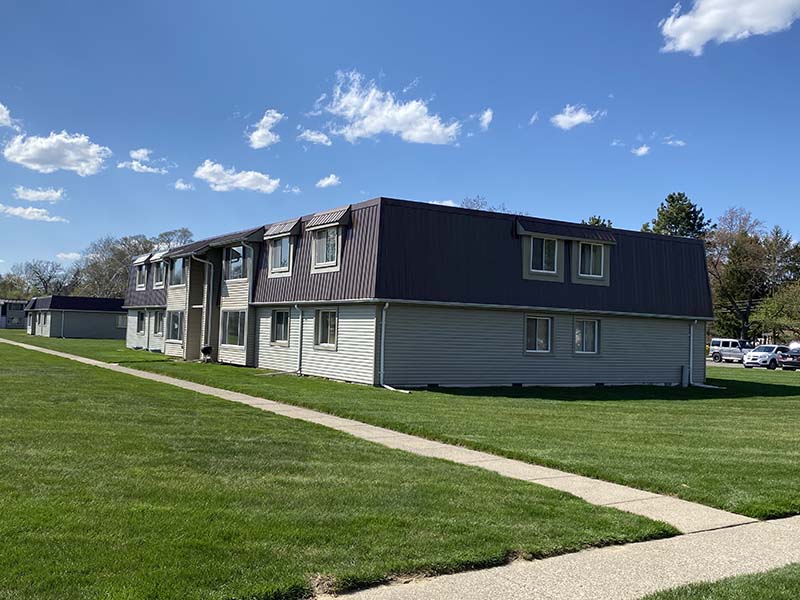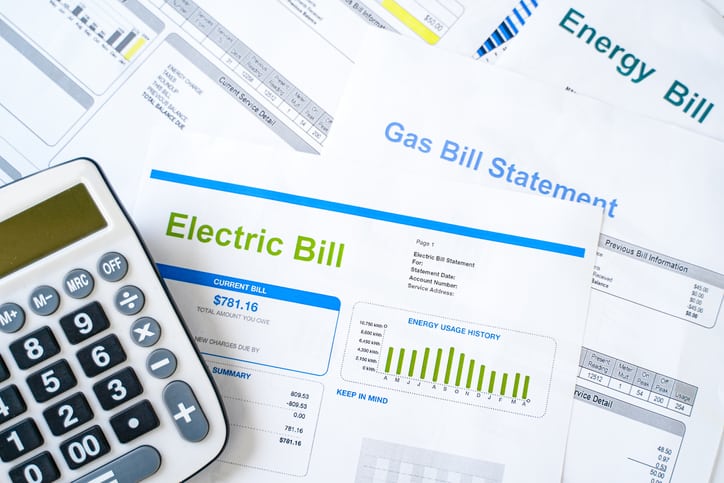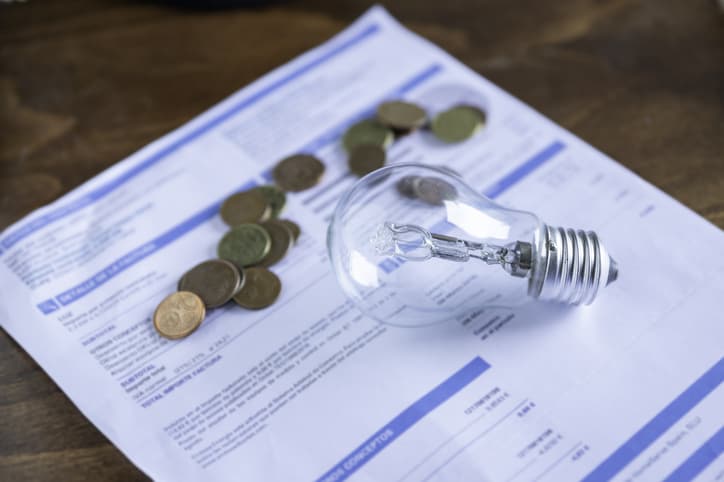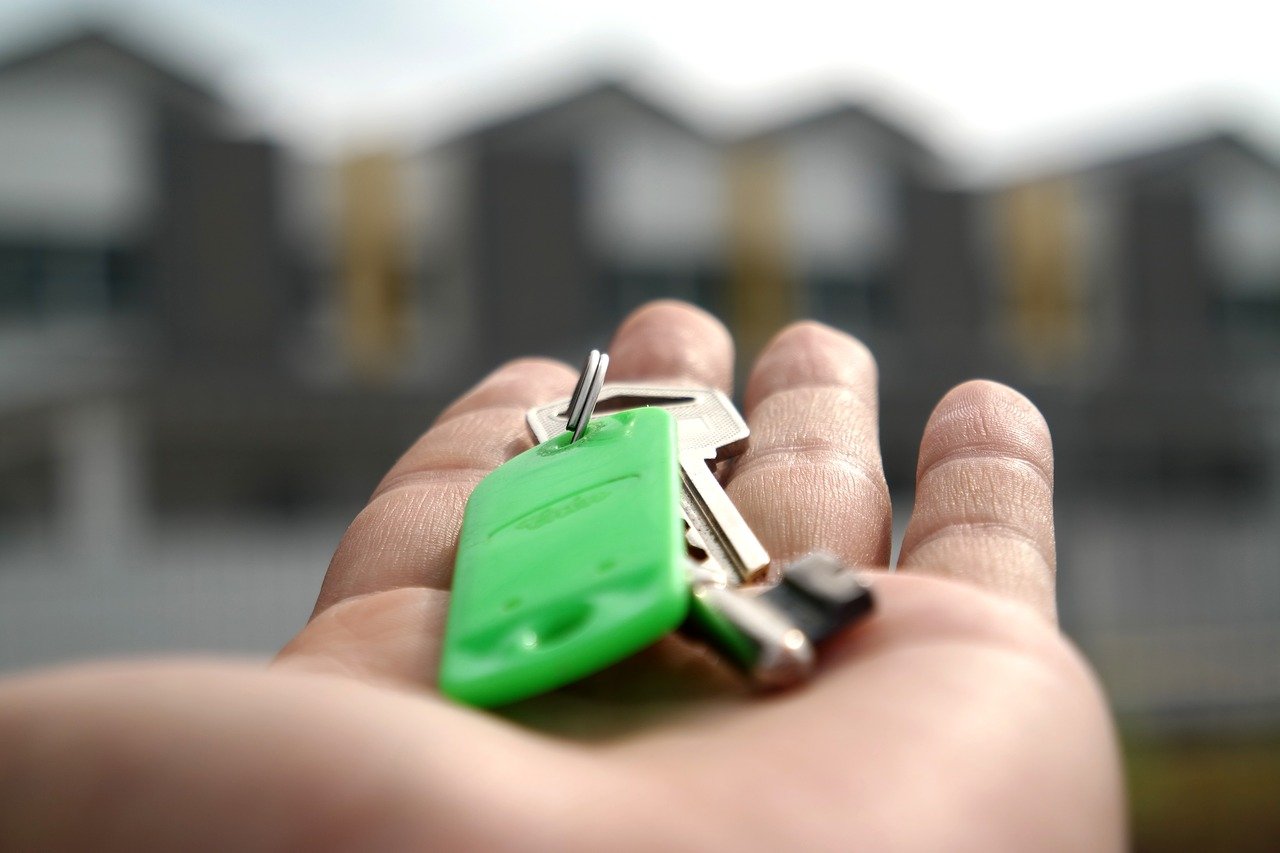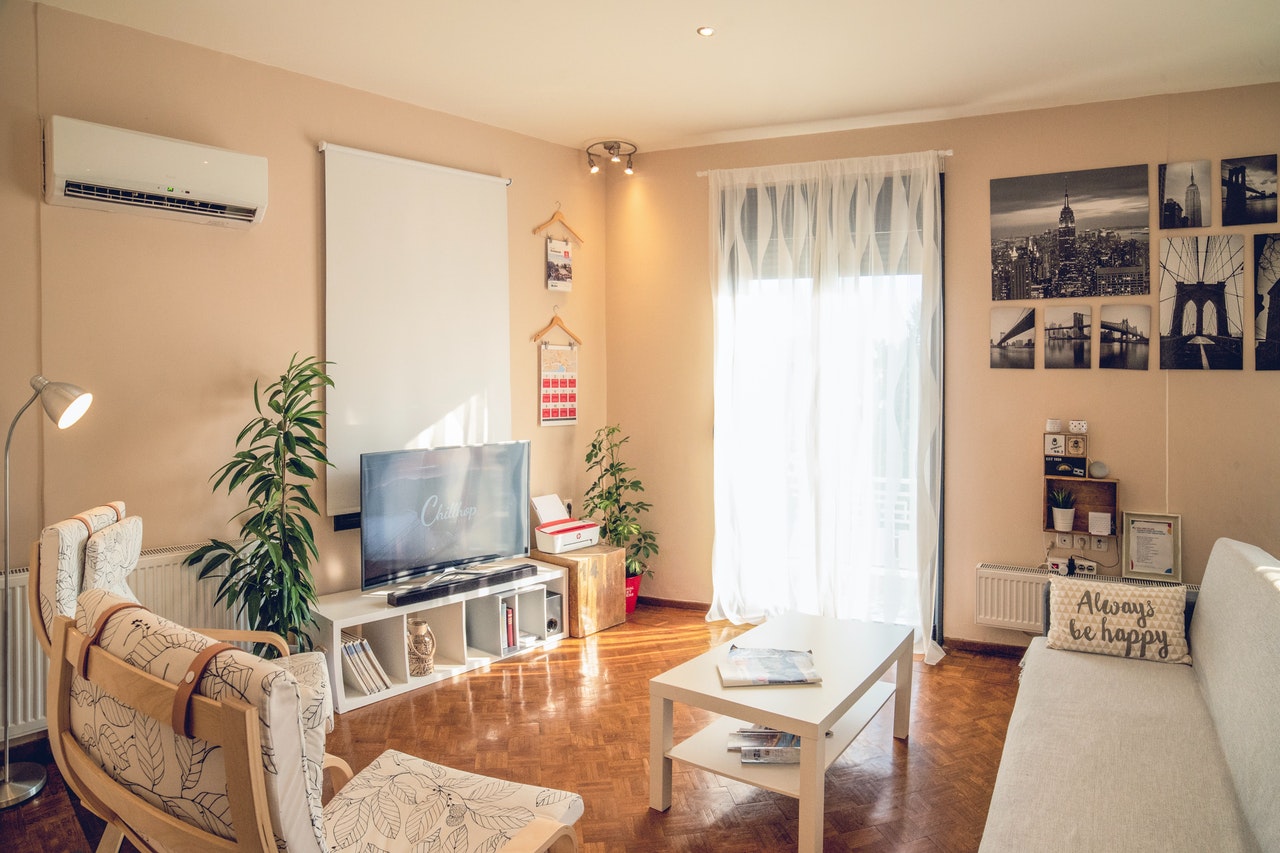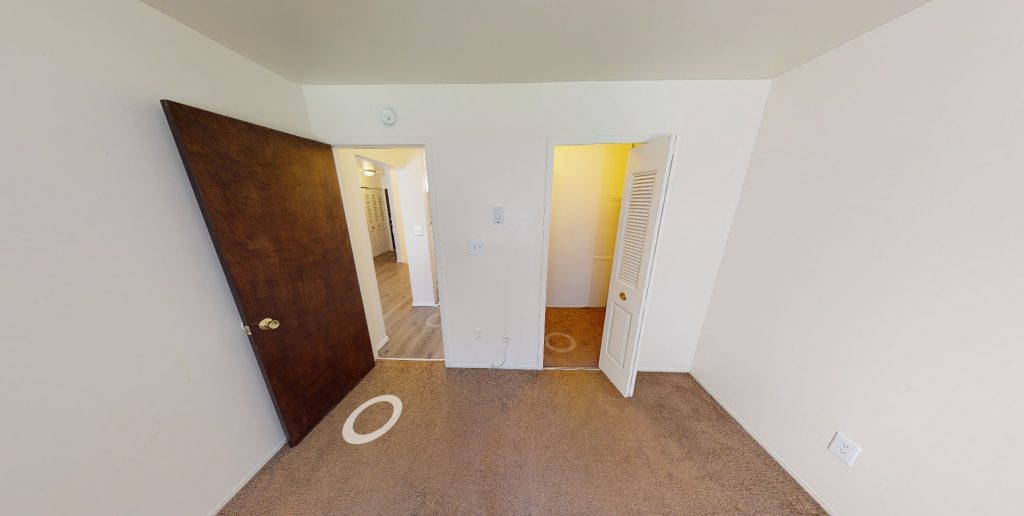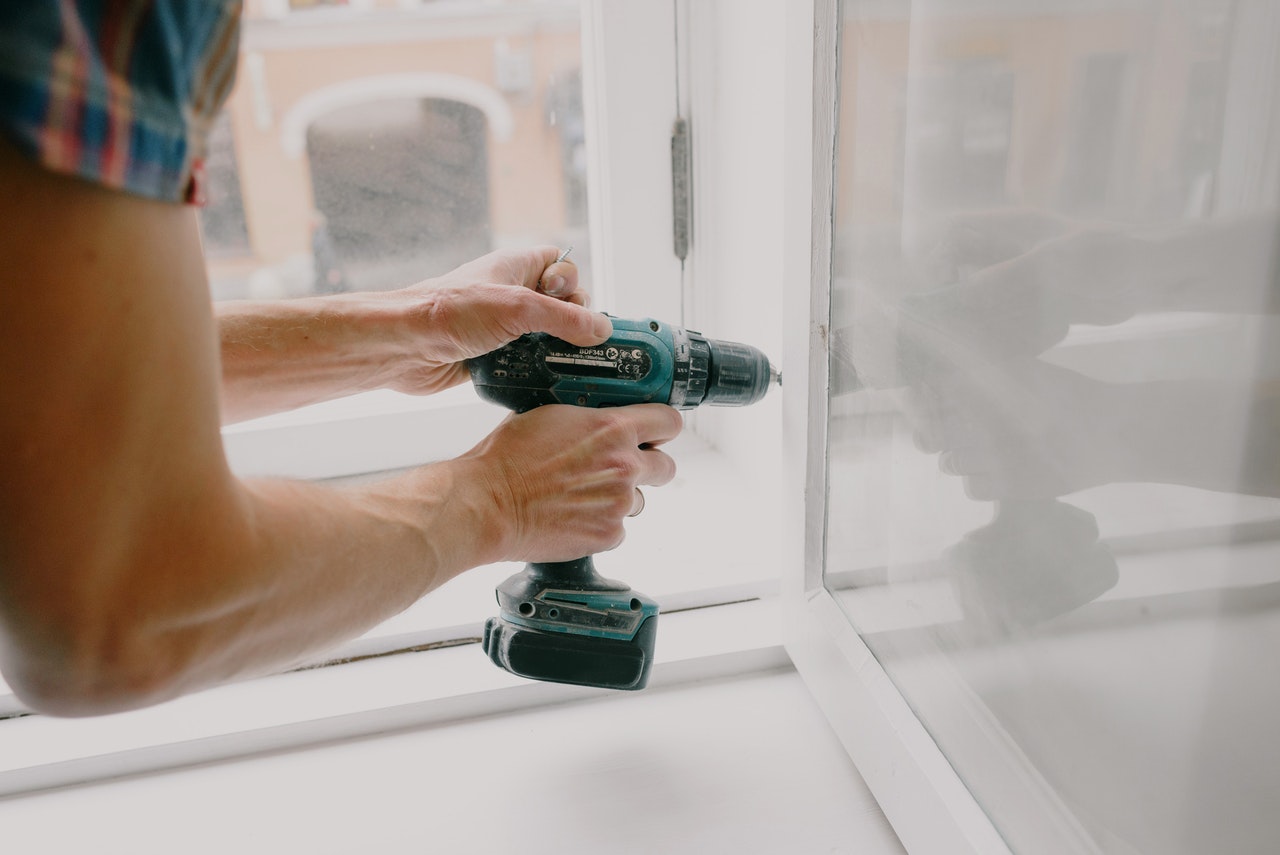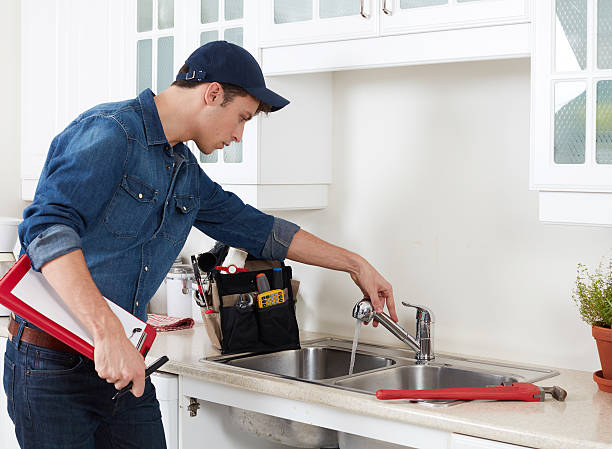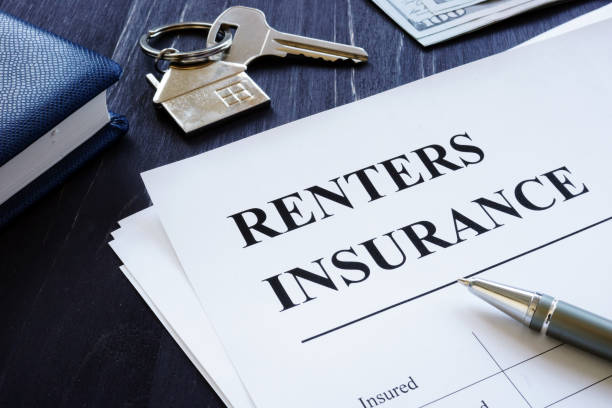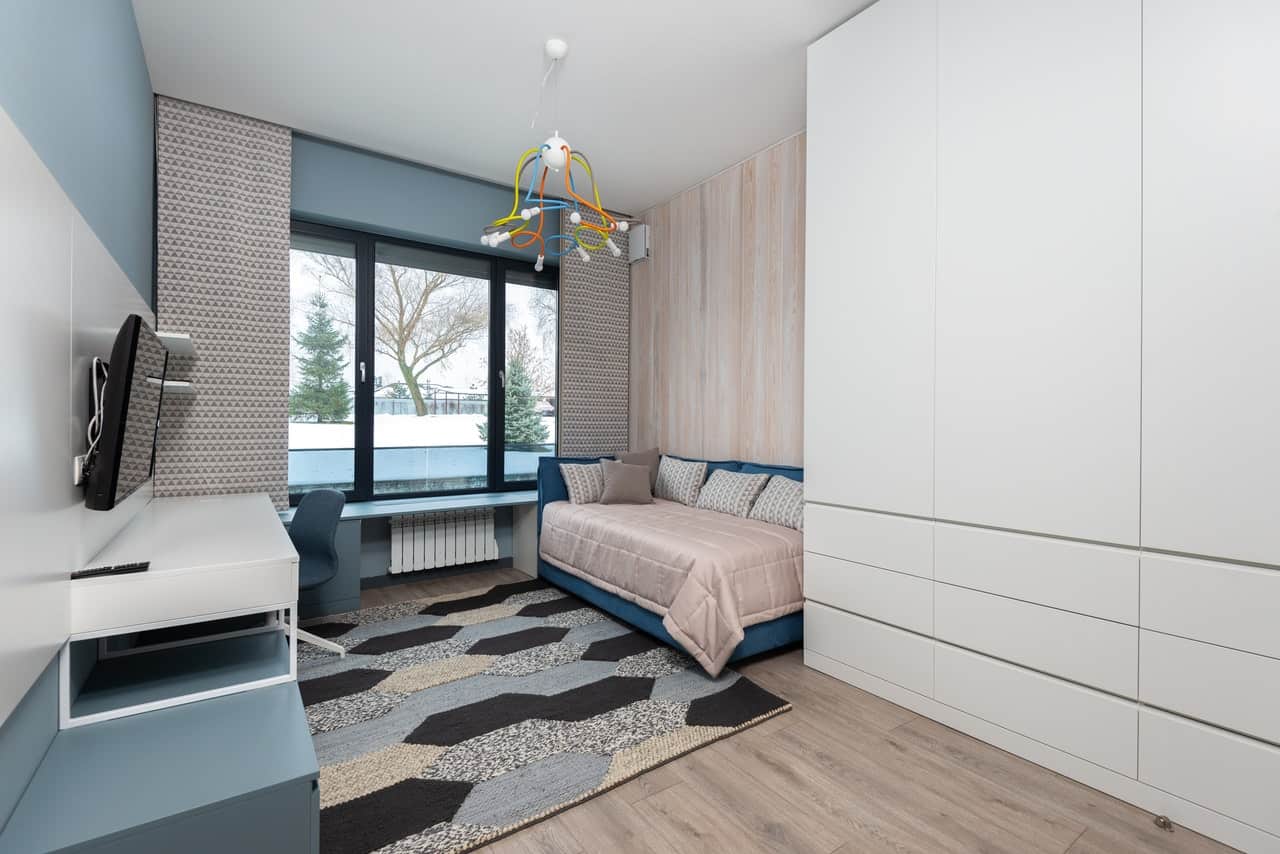July 11, 2022 at 10:08 am
·
Justin Becker ·
Comments Off on Top 5 Apartments in Oakland County with Utilities Included
It is unbelievable how many people are looking to rent apartments with utilities included. So, what makes apartments with utilities included so attractive to prospective renters?
The fact is, moving into an apartment comes with a lot of expenses; so it makes sense to look for ways to reduce them. For instance, there can be an installation fee associated with setting up utilities; however, when utilities are included, this expense is not a concern. Learn how to keep utility bills low in an apartment here.
That said, in Oakland County there are a number of lavish apartments that come with utilities included in the rent. With so many options available, however, how can you make sure you choose the best? Let our guide here help you.
What is a ‘Utilities-Included Apartment?’
If you rent an apartment with utilities included, this means you agree to pay your monthly rent that has some of your utility bills already built in. Your landlord will be responsible for paying the utility companies on a monthly basis for these various utilities, saving you the hassle of keeping up with the paperwork as you prepare to move-in, along with the monthly bills.
Many utilities-included apartments cover things like water, electricity, trash removal, and/or heat. Other apartments may include Wi-Fi as an additional utility included. If you locate apartments with all utilities included, carefully review your lease agreement to determine what is specifically meant by “all utilities included” before signing it.
Typically, utility bills fluctuate every month depending on the number of people living in one unit and how often they use the various amenities. Learn what bills to expect when renting an apartment here.
Apartments in Oakland County with Utilities Included
Why is finding an apartment so hard? Yes, finding apartments that meet your search criteria can be challenging, and occasionally you have to compromise. However, this article greatly simplifies your search experience if you are seeking the best utilities-included apartments for rent in Oakland County, MI.
Here are some of the best cities to visit in Oakland County:
● Oak Park
● Rochester Hills
● Auburn Hills
● Farmington Hills
● Keego Harbor
That said, here are our top five apartments in Oakland County, MI with Utilities included:
Cass Lake Front Apartments
At the top of our list is Cass Lake Front Apartments. Located north of Detroit, this luxurious apartments for rent community sits between Sylvan Lake, Pine Lake, and Cass Lake, Michigan. This apartment complex takes pride in having the most affordable rentals in Keego Harbor, MI.
Cass Lake Front Apartments offers 1-bedroom apartments for rent in Keego Harbor, MI and 2-bedroom apartments for rent in Keego Harbor, MI, with all units including stunning hardwood floors, granite countertops, and ample living space. Other amenities include:
● Pet-friendly (see the apartment pet policy)
● Laundry facility
● Personal storage cage
● Walk-In closets
This 1 and 2 beds apartment community has water, sewer, and trash removal included in the rent.
The community is near the best-ranking Keego Harbor schools, such as Bloomfield Hills, West Bloomfield, and Waterford School Districts.
Greens Lake Apartments
This community is located at 5605 Parkview Dr, Clarkston. This 1 and 2 beds apartments community offers an average floor plan of 950 to 1,200 square feet. You will be happy to learn that the neighborhood has a number of amenities available, including a tennis court and a clubhouse.
When it comes to utilities included, this apartment complex covers water, trash removal, and sewer.
This 1 and 2 beds community offers a 12 months leasing option (learn more about apartment lease options here). If you prefer a short-term lease, feel free to negotiate with the landlord.
Pets are welcome, so feel free to bring them when you move-in. Just be aware of their apartment pet regulations.
It is near several public elementary schools, including Andersonville Elementary School and Kingsley Montgomery School.
Botsford Place Terrace Apartments
This luxurious 1 bed, 2 beds, and 3 beds apartment community is in Farmington Hills, MI, at 27883 Independence Street, Suite 103-G. The best thing about Botsford Place Terrace Apartments is that it is situated in a quiet neighborhood and is ideal for raising a family.
It has well-lit tree-lined streets and is pet-friendly, so feel free to bring along your furry friends. They offer 1-bedroom apartments for rent in Farmington Hills, MI, 2-bedroom apartments for rent in Farmington Hills, MI, and 3-bedroom apartments for rent in Farmington Hills, MI. All of their units have spacious living rooms and access to on-site laundry facilities.
The location of this 1 bed, 2 beds, and 3 beds community is its biggest asset. It is close to some of the best Farmington Hills parks, popular recreation areas, Farmington Hills shopping malls, Farmington Hills restaurants, and grocery stores.
With water, sewer, gas, and trash removal included in your rent, you have less to worry about as a tenant in these apartments in Farmington Hills, MI with utilities included.
Pine Lake Manor
Located right off Orchard Lake Road, this 1 and 2 beds property offers luxurious and affordable units. A lake living experience here is an opportunity you should not pass up.
As a renter, you will enjoy several amenities, including beautiful landscaping, a sparkling pool, and 24-hour emergency maintenance (learn what is considered emergency maintenance in an apartment here). Each unit is fully equipped with central air, window coverings, and in-unit washers and dryers. The good news, too, is that the trash removal is included in your rent.
The West Bloomfield School District, which has won numerous awards, provides educational services to this neighborhood. It is also easy to get to major nearby cities, like Farmington Hills, Rochester Hills, and Auburn Hills thanks to the community prime’s position.
Village Oaks Apartments
Located in Farmington Hills, MI, at 20800 Orchard Lake Rd, Village Oaks Apartments provides residents with 1-2 beds units for rent. It is covered in beautiful landscaping, has well-lit controlled access entry, and lush trees surround the property.
The utilities included are heat, trash removal, and air conditioning. This 1 and 2 beds property is fully equipped with high internet speed, walk-in closets, and in-unit dishwashers.
Benefits of Renting an Apartment with Utilities Included
Here are the benefits of renting an apartment with utilities included.
You Can Easily Plan Your Monthly Budget
A single monthly payment is simpler to manage than needing to factor in multiple fluctuating bills. Dealing with several bills can be challenging and could result in forgetting to make some payments.
You Can Save Money on Move-In Fees
If the landlord has utilities included in your lease, you might save money because setting up some utilities can cost money.
Less Paperwork when Moving in
It can be daunting to fill out paperwork while setting up utilities in a new apartment for rent. This can be avoided by renting an apartment with utilities included because the landlord will need to handle the paperwork instead.
A More Cozy and Comfortable Lifestyle
You do not have to worry about various costs when utilities are included, thus making for less stress in your life.
Convenience at its Best
Apartments with utilities included are certainly convenient. Imagine moving into an apartment and finding everything ready for you to use without any need to set anything up. Here is what to know about moving into an apartment.
What Utilities Do Most Apartments Cover?
Most of these kinds of apartments cover various utilities, such as water, heat, air conditioning, and/or trash removal. It is important to review your lease agreement for further information about the utility pact.
Should I Rent an Apartment with Utilities Included?
Our answer is Yes! With that said, we recommend comparing the previous monthly cost of your utility bills to the flat monthly rate the landlord is offering for apartments with utilities included before making a decision.
Final Thought
Apartments with utilities included offer a number of advantages, such as convenience, a simplified monthly budget, and potential cost savings. Examine the lease in detail and discuss your obligations with the landlord before signing it to ensure that you are clear on both sides of the agreement (learn how to read an apartment lease here).
With the current search for your next home, visit different property types websites for further apartment related info. If the information provided has pleased you, submit a tour request application form and visit the property.
Read more
July 4, 2022 at 2:51 pm
·
Justin Becker ·
Comments Off on What to Know About Moving into an Apartment
For many people, moving into a new apartment is an extremely stressful and time-consuming process. It requires full commitment to execute, from reserving a truck to unloading and arranging furnishings in the new apartment.
By breaking down the moving process, you can better grasp what needs to be done, when, and by whom. This lessens the stress of moving to a new location. That said, how well-prepared you are for the undertaking will determine whether your move is stressful or smooth and straightforward.
First-time renters frequently fall into the same traps by failing to comprehend some simple moving techniques that may have helped them. For instance, many renters overpay for moving services by failing to make a truck reservation in advance. Check out some more tips on what to know for first-time renters here.
What to Know About Moving into an Apartment
Moving comes with a lot of obligations that could become overwhelming. So, to avoid experiencing burnout in the process, you need to understand how to navigate through the moving process. You need to be aware of every step and the expenses you incur from beginning to end.
If you have been living at your parents house, create your ‘what to look for when renting an apartment checklist’ and go through each step, checking all the boxes as you go, until you are positive that everything is in order.
That said, here is everything (apartment tips) you need to know about moving into your first apartment:
Talk to Your Current Landlord
Notify your current apartment landlord that you do not intend to extend the lease before making any moves to leave the property. The majority of apartment buildings demand a 30-day moving-out notice. You will want to submit this even before signing a lease at a new location. It is best to review your lease agreement and understand the requirements or steps for moving out. Learn how to read an apartment lease here.
If you submit your move–out request late, a penalty that could involve keeping your security deposit or charging you more money may apply. Learn what is a security deposit for an apartment here.
Furthermore, if you cannot resolve the conflict, this could harm your relationship with the property manager and eventually tarnish your rental history.
After receiving your request, the property manager will visit the property with your first apartment checklist to inspect or walk through it and determine any faults. You will get your security deposit if the landlord is satisfied with the unit’s state; otherwise, you may be required to pay for any damage caused to the property. Checkout our guide on how to get your security deposit back for further assistance.
Contact Your New Landlord
Talk to your new landlord about your move-in date. Request apartment keys and other valuable information, such as where to park the truck. It might not seem like a big deal now, but just wait until you park your truck in an inappropriate place and ruin your first impression of one of your new neighbors.
It is best to be aware of the community rules of each apartment building, including the apartment pet policy. Consider asking the landlord to show you around on the day of your move–in.
In addition, ask the new landlord how you should pay for your first month’s rent. Also, if you must complete a moving checklist together, ask whether it will be before or on the day of your relocation.
It is ideal to ask the community management whom to approach for maintenance requests before moving in. Learn more here about maintenance tips for apartments here.
Renters Insurance
If this is your first apartment, understand that most landlords require renters insurance before moving in. Do not confuse renters insurance and homeowners insurance; the former is tailored to tenants, while the latter is for homeowners and covers the dwelling rather than a tenants possessions.
Renters insurance shields you from damage. For instance, if your laptop or other priceless electronic equipment gets damaged due to a catastrophe, the policy will pay you back. Typically, renters insurance costs between $168 and $360 per year, which is about $14 to $30 per month.
There is a stark difference between the cost of the coverage or policy and the worth of your personal belongings. You stand to gain more in the event you lose your personal belongings.
If you have other policies, like auto insurance, you might want to find out if your current provider also offers renters insurance so you can perhaps get a discount. Learn more about if everyone in an apartment needs renters insurance here.
Moving Budget
Moving into your first apartment involves a lot of costs, from hiring a truck to hiring hourly workers to help you pack, load, and unload the items from the truck. In order to prevent a deficit that could delay your first apartment move, you must account for every expense you anticipate incurring.
You might need to consider the price of moving boxes and other moving supplies. Make a budget in advance by breaking down all the potential expenses you will face, and not just your moving expenses, plan about your monthly expenses as well if this is your first apartment. Learn more about what bills to expect when renting an apartment here.
The following list includes some moving-related expenses you can face during your first apartment:
Making a list of potential expenses will help you better manage your money (save money in the process) and receive everything you require on time as you move into your first apartment.
A better way to budget could be by getting a free quote from a moving company like Three Movers. This way, you’ll know all the expenses and you won’t need to take care of each individual expense yourself. You’ll also save yourself a lot of energy and time as everything will be done for you.
Create an Inventory
The far more effective strategy to keep track of your belongings and prevent losing or misplacing any during the relocation process is to make an inventory. List down all your items and group them when packaging for easy tracking. For example, you may want to create separate inventory for the kitchen, bathroom, bedroom, and living room items.
Furthermore, take pictures to back up your inventory. Photographic documentation can aid you in monitoring the condition of the items before and after the transport. Make sure to take clear pictures with good lighting.
Secure Packaging Boxes and Tools
Where will you keep your kitchen supplies or clothes? You need boxes, packing tape, and packing paper; visit your neighborhood shop and select the appropriate packaging boxes for your goods. Depending on the size of your things, be sure to buy various sizes. Buy some to pack clothes, and others suitable for kitchen supplies. You may also want to think about storage for your groceries, which are often perishables.
Hire Movers
The most expensive part of moving is likely hiring a mover. By comparing prices and selecting the best mover, you will need all the good fortune you can muster. Typically, the total cost of moving depends on the size of your belongings and the distance to your destination. If you are moving across the state, brace yourself for a huge bill.
The estimated costs of hiring trucks are between $130 for a local trip to $3,250 for long-distance.
Having said that, to reduce your logistical costs, it is advisable to look for special offers and cheaper per-mile trucks (scheduling movers will help you save money). Although we recommend looking for reputable movers with solid online reviews, do not overlook new entry moving companies. They may be as good as the industry leaders and yet still offer you a lower rate.
Consider Storage
If you are downsizing (read more on how to downsize from a house to an apartment here), or your closet storage will not fit your belongings anymore, then consider renting storage units for your extra items. The location of the storage unit will depend on how frequently you need to access the items.
For instance, find a storage facility close by if you frequently require access to the belongings, but a facility farther away from your residence is still OK if you don’t frequently need access to the stuff.
Typically, a storage unit will cost about $190 per month, on average. A small unit may cost you $90, while a larger unit will cost you as high as $300 per month.
Having said that, the more items, the higher the cost of storage per month. Trying to get rid of things you do not need is a sensible strategy in this situation. For instance, you may want to offer large furniture, clothing, and other items for sale on Craigslist or to friends. Creating marketing collateral will help you sell your items fast. Learn other ways on how to declutter your apartment here.
Take Extra Measures when Packing Delicate Items
For your electronics and other delicate items, consider purchasing bubble wrap to add an additional layer of protection and serve as a shock absorber. Furthermore, transport flower vases and other valuable items in your personal vehicle for extra protection.
Start packing early before the moving truck arrives at your doorstep. Some items you can start packing days or weeks before your moving day.
Consider Moving Time
Are you moving in the winter months or summer months? Both times present different challenges, so you need to be aware of when to move during those two seasons. For instance, during the summer, the best time to move is early in the morning when the temperatures are still low, or late in the evening after the sunset to avoid the heat.
Making sure your new apartment’s sidewalks are cleared for the moving truck to pass should be a priority if you are relocating during the winter. Furthermore, it might not be a good idea to start too early in the morning; instead, you might want to wait until the temperature rises.
Setup Home Services
Before moving, spend a day or two setting up the home services. Here are the things you need to pay attention to when setting up your home:
Connect Utilities
Make sure your electricity is connected, as well as your gas and water supply. You do not want to move into an apartment complex just to discover that the electricity or water is not connected. Learn how to keep utility bills low in an apartment here.
Update Your Address
Be sure to update your address before moving. Visit a nearby local post office and request a change of address. Make sure you create a change of address checklist to help you update all things, like credit cards, banks, drivers licenses, etc.
Setup Internet and TV Connection
Nowadays, no one can rent an apartment without a WiFi connection. Ask the landlord whether the internet is provided by the apartment or by a third party. If it is a third party, consider looking for a reliable service provider and set up the connection days before your move. Also, make sure your TV connection is ready in advance.
Install Security System
Safety is important, so make sure you install security gadgets in your new apartment. It is often recommended to have CCTV cameras set up for surveillance.
Items to Keep Closer
Do not be naive to pack everything in the truck without thinking of urgency. There are certain items you need to keep closer or within an arm’s reach during relocation. With that said, here are some items you need to keep closer:
Coffee Maker
Make sure the coffee machine is just a little closer. Once the items are taken out of the truck, you might not be able to rearrange everything immediately (learn more on how to arrange furniture in a small apartment, here). That said, with the coffee machine closer, you may be able to make some drinks as soon as you arrive.
Cleaning Supplies & Toiletries
Shower curtains, toilet paper, and other cleaning supplies are some of the items you will use as soon as you arrive. It is obvious you need to do a thorough cleaning before and after moving in, so make sure the cleaning supplies are close by.
Emergency Supplies
Make sure your first aid kit is close by. There is a lot of movement involved with moving, and as a result, injuries to you or others are possible.
What to Look for in a New Neighborhood
As you are unfamiliar with your new neighborhood, it is advisable to learn about certain key locations before settling in, such as coffee shops. That said, here are some locations you need to keep track of after signing a lease agreement:
Grocery Store
Cooking is inevitable. Visit the neighborhood and discover the grocery stores, among other convenient stores nearby the apartment. How far is it from your first apartment?
Gas Station
Locate a nearby gas station before moving. You may need to gas the truck before leaving.
Transit Station
Will you be traveling to work? If yes, find the nearest transit station and establish how long it takes before you arrive at your workplace.
Healthcare Centers
Among the top of your list should be finding the nearby healthcare facility. Find out if there are any or how far is the nearest to the apartment.
These are some of the things you need to pay attention to during apartment tours. You will want to select an apartment that is strategically located close to all the amenities you need.
Final Thought
We recommend planning your move, no matter if this is your very first apartment move or not. Recognize the steps you must do both before and after your move. Even though it is simple to forget some things, making your first apartment checklist will help ensure that your move to the new apartment goes smoothly.
Lastly, if you have young children, make sure you talk to your friends or neighbors in advance so they could take care of them during your moving day.
Read more
June 27, 2022 at 12:06 pm
·
Justin Becker ·
Comments Off on How to Rent a 1-Bedroom Apartment
If you are just starting out in apartment hunting or perhaps want to downsize from a larger home, a one bedroom apartment will probably fit your needs. It is slightly bigger and more practical than a studio apartment. The latter is cheaper, but does not offer much in the way of privacy. With just a little upgrade, you can get a one bedroom apartment that is suitable for daily living in the long run.
When you are in search of a 1-bedroom apartment, there could be several things on your mind. A 1-bed can be quite luxurious too, so you can have a luxurious life in one if that is the goal. On the other hand, some people might be working with a very tight budget. They may only be able to afford a 1-bed, but plan to convert the apartment living room into a bedroom for accommodating the family.
How to Rent a 1-Bedroom Apartment
Now that you are ready to book your 1-bed apartment home, it might be reasonable to look into the required process.
Most apartment complexes have rules about how many people and pets can live in a 1-bed unit. Some may allow you to convert one room to a second bedroom if possible, but some may take strict action against such practices. Make sure you know such policies before signing any lease.
Other than paying the average rent, here are some tips on renting a 1–bedroom apartment anywhere:
1. Benefit from Technology
2. Always take a Tour
1. Benefit from Technology
With the internet at the fingertips of so many people now, it is kind of illogical to skip the online searching and browsing in your 1-bed apartment search. There are several 1-bedroom apartments for rent that you can find out about on various websites. With a good website, such as Rent.com or Zillow, you will be able to put filters. These will get you listings of the most likely bedroom apartments in your desired areas. Checkout our top five websites to search apartments for rent here.
If you are not sure where to start, just pull up your default search engine and type in ‘1-bedroom apartments for rent’ followed by the area you want. For instance, you may want to search for ‘1-bedroom apartments for rent in Keego Harbor, MI.’ You can also tweak the features to look for the key features to look for in an apartment.
2. Always take a Tour
When you are looking for a 1-bedroom apartment, you are looking for a bit of comfort and privacy. While there might be several 1-bedroom apartments in the area and price range you want, there is always the chance of deal breakers.
Some 1-bed apartments may have very thin walls, which let in the sounds of your neighbors (learn how to deal with noisy apartment neighbors here). A 1-bed like this is especially problematic, as you have limited space to escape from the noise.
To minimize the chances of being extremely uncomfortable after moving in, always insist on a physical tour of the 1-bed. Many apartment complexes offer a virtual apartment tour, so look at them while shortlisting. When finalizing the 1-bed, though, an in-person tour is necessary (learn how long apartment tours take here).
Factors to Keep in Mind when Looking for a 1-Bed
Why is it so hard to find an apartment that fits your needs and wants? There could be many answers to this question, but it really boils down to fulfilling your preferences. At the end of the day, every potential tenant wants to lead a certain kind of lifestyle, but not have to pay too much for it. On the other hand, no 1-bed apartment could provide the exact combination of factors and features required by most tenants.
Below are some factors to keep in mind when looking for a 1-bed apartment or any kind of bedroom apartment:
● Having Enough Storage Space
● A Good Location
● Rent Prices
Having Enough Storage Space
Storage space is necessary in an apartment; it needs to be ample as well as non-intrusive – having a balance is an ideal situation. Houses usually have a larger floor plan, with backyards, sheds, attics, and basements for storage purposes.
In a 1-bed apartment, though, space might be very limited. However, there should be enough cabinets, cupboards, and other places for all your necessities in a 1-bed unit so you can adjust to apartment living accordingly.
A Good Location
If you are a retiree looking to downsize from a house to an apartment, you likely want an area that is quiet, peaceful, and preferably has some people of your own age to socialize with. If you are a fresh graduate just heading out on your own for the first time, you may want a more happening area with a lot of job opportunities close by (here is what to know for first-time apartment renters).
Whether you rent a 1-bed apartment or a two bedroom, having a good location is quite important. In any case, it is always good to settle down in a neighborhood that is safe, secure, and well-maintained.
Rent Prices
One of the most common reasons why people look for a 1-bed apartment is the comparatively lower rent price. If you are considering a 1-bed unit in an apartment complex, make sure to check the rates for a two bedroom apartment as well. In some cases, two bedroom and one bedroom apartments may not have very different costs. If you have a medium to large family and could use the space, this small difference might turn your decision in favor of the two bedroom apartment.
As a rule of thumb, though, one bedroom apartments and studio apartments usually have the lowest average monthly rent in any location (learn how to find a studio apartment here). When you are browsing 1-bedroom apartments for rent online, use the search tools on the websites to filter the results according to your needs. Also, do some research to find out the average rent for 1-bedroom apartments in your preferred areas.
Difference Between a Studio Apartment and a 1-Bed Apartment
If this is your first time renting an apartment, you might not be clear on the differences between a studio and a 1-bed apartment. Let us clear up the confusion with a few points about the main contrasts between the two:
1. The Matter of Privacy
2. Amenities within the Unit
3. The Expected Lifestyle
4. Level of Professionalism
5. Upkeep and Maintenance
1. The Matter of Privacy
When you are in a studio apartment, there is just one largish open space. This is where you will sleep, eat, hang out with friends, and work, if required. If you are living with roommates or constantly have company over, privacy is going to be a thing of the past for now.
For those in a 1-bed, there is a dedicated bedroom, living area, kitchen, etc. It is more private this way, especially if there are other people in the space. You can easily allow a friend to crash on the couch or just have some space from your significant other if the need arises.
2. Amenities within the Unit
Since a 1-bed is usually larger than a studio apartment, it is also more likely to have several amenities that you can not get in a studio. A 1-bed could easily have laundry hookups, a few closets, additional storage space, and full-sized appliances.
If all these amenities are not absolutely necessary for you, a studio apartment might be suitable. Laundry facilities inside the building are usually good enough; some people even make do with going to the nearest laundromat on a regular basis. Smaller appliances may also be acceptable if you are living alone or with just one other person.
3. The Expected Lifestyle
With a 1-bed, you are more likely to have enough space for regular entertaining. If you are fond of potluck dinners, parties, and random get togethers, it is worth considering a 1-bed for your new apartment home.
If the main aim is just to find a place for living on your own or with someone you are very close with, a larger space might not be that necessary. At the end of the day, you may just need enough space to work, eat, and just be yourself.
4. Level of Professionalism
The matter of space is also related to the kind of professional lifestyle you are aiming for. If someone has a job which requires them to travel a lot or be away from home all day, a large living space does not make much sense. A studio will save you money, be compact enough to maintain easily, and be a cozy space to return to after a long day of work.
On the other hand, those who mostly work from home might need a 1-bed and the extra space it brings. A home office is a good idea in such cases; you want to set it up in a large corner or room to avoid distractions from the rest of the home.
5. Upkeep and Maintenance
Decorating, cleaning, and generally maintaining a space is much easier when it is a small one. Studio apartments are easier to clean than a 1-bed, as it is just one open space. On the other hand, it can also be more prone to clutter due to the lack of storage options (learn how to declutter your apartment here).
A studio apartment usually has fewer walls than a 1-bed, so there is less space to decorate. You can also invest in large works of art, which will look impressive and flaunt your personal style as well. For a 1-bed, the advantage is that you can decorate different rooms in various styles.
The Takeaway
There is no doubt that looking for the perfect 1-bed apartment can be a struggle. However, once you do the homework and know what you are looking for, the search will become easier. Start looking now; the demand for any 1-bed will be high and there is no time to waste!
Read more
June 20, 2022 at 11:10 am
·
Justin Becker ·
Comments Off on Maintenance Tips for Apartments
Nothing lasts forever, and even the best-designed apartment complexes might sometimes experience what is considered normal wear and tear. For instance, you might notice your roof leaking, mildew growing in some areas, or even leaky faucets. When this happens, you need to be ready to address the problems to maintain the quality of your apartment.
In the past, maintenance was mainly done by the landlord or property manager. However, nowadays landlords have placed these responsibilities in the hands of tenants.
So, how can tenants manage effective apartment maintenance service at an affordable cost?
This article discusses a few handy solutions and apartment maintenance tips to help you keep your apartment in good shape.
Maintenance Tips for Apartments
Maintaining an apartment can be very easy if you understand the right steps. Let’s consider below what you should do to achieve successful upkeep of your unit:
Maintaining Your Apartment Floor
If you do not take good care of your apartment floor, it is likely to get damaged. One main cause of damage is dirt. When dirt accumulates in your carpet or rugs, the fibers will wear out.
In the case of harder surfaces, such as vinyl, wood, tiles, and laminate, dirt can cause scratches. In this case, we recommend that you vacuum/mop or spot treat your floors at least once a week, and sweep daily to protect it. While mopping, ensure you use the right cleaning product for your floor type.
We also recommend having mats outside and inside the unit to limit the dirt that gets into the apartment.
Leave All the Apartment Appliances Clean
In most cases, you will find certain household supplies and appliances, such as the garbage disposal, a drip pan, dishwashers, or refrigerators in your apartment. Once the landlord hands over these appliances to you, it becomes your responsibility to take care of them. At all times, you should ensure that these appliances are clean and working effectively.
Maintaining appliances involves using them properly, cleaning them, and wiping them down regularly. This way, dirt and grime will not accumulate and reduce their durability.
If you have a washing machine and/or dishwasher, avoid overloading them. While cleaning them up, employ the right detergent or solutions at all times.
In the case of a garbage disposal, having lemon or orange peels inside it can keep it free of bad smells.
For the areas in your refrigerator or dishwasher that you can not be reached while cleaning, vacuum them thoroughly.
Take Care of the Moisture in Your Apartment
Whether it is moisture from leaks or as a result of a lack of cleaning, you need to get rid of it. Having moisture in your apartment will likely lead to mildew and potential mold growth.
We recommend installing a bathroom fan, or making sure the one in your unit is working and is used regularly. You must have the fan on before a shower, and leave it on until the steam disappears.
Dirt is reputable for attracting moisture in an apartment. You should, therefore, clean the apartment at all times. When you do so, ensure you employ non-abrasive cleaners.
Your windows can also allow moisture into the apartment, depending on how you take care of them. We highly recommend closing your windows during the rainy season. Ensure you wash window curtains regularly, too. Extend this same routine to your apartment doors as well.
Regular Apartment Cleanliness
Most landlords require that you keep your apartment clean at all times, otherwise you may expose yourself to the risk of losing your security deposit. Your intention here should be to take care of the unit as if you owned it; so, when you leave, you get your security deposit back. Learn how to get your security deposit back here.
The higher the number of people in your apartment, the messier it becomes. The mess increases even more if you have children. Therefore, we recommend employing commercial cleaning supplies while cleaning your apartment. If you can not find commercial cleaners, you can still use alternatives such as vinegar and baking soda.
Ensure you thoroughly clean critical areas, like:
● Shelves
● Drawers
● Shower/Bathtub
● Countertops
As we mentioned, ensure you mop the floor at least once weekly. Your goal should always be staying in a clean environment. Learn other ways on how to make your apartment smell good here.
Additionally, you must carry out preventive maintenance by ensuring that furnace units and air conditioners experience proper airflow. This mainly entails making sure the filters are clean. Change filters at least 1-3 months to limit overworking of such units.
After dealing with the air conditioner, you can proceed to inspect the vents. The aim here is to make sure that there is no dust accumulation. Learn other ways on how to reduce dust in your apartment here.
When exiting your apartment, avoid leaving heat or the air conditioner in the off position. You can simply turn the air or heat down instead. If you maintain a steadier temperature, you are more likely to save money. Learn how to keep utility bills low in an apartment here.
Maintenance in the Apartment
Besides cleaning the apartment and upkeeping the appliances, several things need regular maintenance. Let’s focus on them below:
Clogged Pipe System
If you notice water draining slowly in the kitchen or bathroom, there is a high chance a clog exists in the piping system. To prevent pipes from clogging, avoid using commercial drain cleaners which have harsh chemicals that could damage the pipes.
Always be careful what you pour into your kitchen sink. For instance, having things such as potato peels and coffee grounds in the sink can result in clogged drains.
The easiest way to unclog your bathroom sinks and floor drains is to pour hot water to dissolve the clog. You can also pour baking soda and vinegar down the drain.
If the pipe remains clogged, you should make maintenance requests to your landlord or call a professional plumber.
No Power
There are times when you might fail to have power in your apartment. In this case, check if your neighbors are in the dark too. There is a chance that the utility company is experiencing a blackout. You can give them a call for the situation to be corrected and/or a status update. You can also check the circuit breaker. The safety switch might have been activated thanks to an overload. In this case, simply reset it.
No Hot Water
Additionally, you might find that there is no hot water in your apartment, forcing you to take a cold shower. The first thing you should do is check whether your water heater circuit breaker is set correctly. If the heater uses gas, there is a chance the pilot is off. In such situations, check the owner’s manual to troubleshoot the problems. If there is any damage to any electric component, ensure you replace it immediately. Where necessary, call a qualified electrician to help you out.
Broken Fixtures
The more time you spend in an apartment, the more likely you are to have overuse. The end result would eventually be some of these fixtures breaking. When this happens, you must fix them as soon as possible.
For instance, if you have a burnt out lightbulb or the smoke alarm needs new batteries, you can make quick replacements. Any major problems, such as a non-functional garbage disposal, should be left to professionals.
The Final Verdict
If you maintain your apartment regularly, you will improve its lifespan and reduce the cost of repairs. There are certain apartment maintenance options that you can comfortably manage by yourself, including maintaining the floors, cleaning and replacing malfunctioning appliances, and taking care of moisture. Additionally, you can take preventative measures to avoid unwanted pests (learn how to get rid of tiny ants in your apartment here).
However, some apartment maintenance practices require the assistance of outside experts. This includes handling power issues and unclogging pipes.
Ensure you follow the above apartment maintenance checklist, and always seek professional help for better results.
Read more
June 13, 2022 at 1:15 pm
·
Justin Becker ·
Comments Off on Does Everyone in an Apartment Need Renters Insurance?
Money is one of the most sensitive topics to share with your roommate(s). You can not avoid talking to them, regardless of how uncomfortable the subject makes you feel. Failure to do so could end up being terrible and may lead to the end of your relationship.
Generally, it is a good idea to share a room with someone you know, not just by name or face, but also by habits, particularly financial discipline and commitment to a cause like splitting bills. That said, if you share a room with another person or more, you may wonder whether they all need renters insurance.
Does Everyone in an Apartment Need Renters Insurance?
The simple answer is Yes. Everyone in the unit needs to own a renters insurance policy when renting an apartment. This usually covers your personal items and aids in their recovery in the event that they are damaged or stolen.
With that in mind, let’s discuss in detail renters insurance and what you need to do when sharing an apartment with a roommate.
How Renters Insurance Works
For first-time renters, do not mistake renters insurance with homeowners insurance; these are two separate insurance policies. Consider renters insurance if you do not own a home. Renters insurance is designed to protect your personal items in the event that they are stolen or destroyed by natural catastrophes, like floods or hurricanes.
Renters insurance is generally more affordable than homeowners insurance, which is a good reason why you should rent an apartment rather than own a house.
The good news is that renters insurance often covers damage to a visitor in your apartment, which is often known as liability protection.
A rule of thumb when considering whether or not you should take renters insurance is to ask yourself one question: is it possible for me to replace my household belongings if they are damaged or stolen?
If you can’t afford it, consider purchasing renters insurance to protect your valuables and protect yourself from future losses.
The average renters insurance policy costs between $120 and $190 a year. Typically, this insurance coverage covers $25,000 in personal property. Typically, the insurance cost is solely determined by the number of personal belongings you own. For example, if you rent a home, your costs may be more than if you rent an apartment with fewer belongings.
Many landlords require renters insurance. Some apartments, however, do not require renters insurance as part of the obligatory paperwork that a tenant must submit upon moving into the community.
For college students, if you live on school premises, your parents’ homeowners insurance usually covers your damages, but if you reside off-campus, you may need to purchase renters insurance.
What a Basic Renters Insurance Policy will Cover
Renters insurance is divided into three types, each of which protects you against various threats:
- Personal Property Coverage
- Loss-of-Use Coverage
- Personal Liability Coverage and Medical Expenses
Personal Property Coverage
This includes furniture, laptops, and jewelry, among other personal valuables. However, it is important to remember that the coverage will reimburse you for any damages or losses up to the policy maximum. This implies that you may have to pay the difference if the replacement exceeds your limit.
Loss-of-Use Coverage
In the event your apartment becomes inhabitable because of fire or floods, your loss of use coverage policy will cover your temporary housing.
Personal Liability Coverage and Medical Expenses
The benefits of renters insurance go beyond your belongings; it protects you against liabilities. For instance, if a visitor slips and falls in your unit or your dog bites someone, your renter’s insurance will protect you from the financial burden of paying a medical bill.
What Does Renters Insurance Not Cover?
Just because it is called renters insurance does not mean it will cover everything in your apartment. There are items your renters insurance will not cover, including, but not limited to, the following:
- Property damage caused by pests
- Items of high value
- Damages from terrorism or nuclear war
Does a Renters Insurance Policy Cover Roommates?
If your roommate is not listed on the policy, they will not be covered. However, if your roommate is named on your policy and their goods are stolen or destroyed, your policy will cover the loss up to the policy limit.
Can I Add a Roommate to My Renters Insurance Policy?
Yes, you can add your roommate to your renters insurance policy. However, this is determined by your local authority and the insurer. That said, if your insurer allows it and the state agrees, you can change the beneficiary of your coverage.
Tips for Sharing Renters Insurance with a Roommate
It is critical to comprehend the big picture when sharing renters insurance with a roommate. For example, will the shared renters insurance policy be the best option for you?
With that said, here is what you need to know:
Determine How Much You Own
Before purchasing a renters insurance policy, determine how much you own and, as a result, how much coverage you may require. You can do this by creating an inventory list and having an idea of all the items you want to get covered in your policy.
Talk to an Agent
Talking to a professional insurance agent is the best thing you can do before buying an insurance policy. An agent can examine the policy and determine if it is best shared or not.
Look for Discounts
If you want to save money, comparing insurance companies will help you find a better deal. Many insurance companies offer discounts to their first-time customers and existing customers purchasing an additional policy. You can compare the terms and potentially save more money.
For example, suppose you already have a car insurance policy (auto insurance) with an insurance company. In that case, you may be able to save money through discounts by purchasing an additional policy for your apartment at the same company.
Drawbacks of Sharing Renters Insurance
If you want to share a renters insurance policy, consider the drawbacks before proceeding. Having said that, here are some drawbacks you need to be aware of when sharing renters insurance:
Issues with Multiple Claimants
There will be difficulties filing claims when roommates share renters insurance. For instance, if your item is damaged and you need to file an insurance claim, the roommates might want to discuss what happened and how much the item costs. This may make the process more difficult than it would be if you had the renters insurance coverage on your own.
Furthermore, buying the policy will also be challenging. If you have a brand new laptop and the roommate has a second-hand laptop, sharing 50/50 may sound unfair.
Claims Limitations
The benefits of insurance will be limited if roommates share renters insurance. For example, most insurance policies have a limit on electronics covering up to $2,500, which means that if two or more individuals lose a laptop worth more than that, the insurer will only pay out $2,500.
That said, if the laptop is worth $2,200, you and the roommate will split $2,500, forcing you to pay the difference.
Your Insurance History is On the Line
If you decide to share renters insurance coverage, your insurance record will be at risk. Just like credit history and credit score, it will be used against you when seeking homeowners insurance in the future.
Final Thought
Typically, when renting an apartment, everyone needs to own renters insurance. When you consider the possibility of losing your belongings, you would instead buy a cover to protect yourself from future loss.
Read more
June 6, 2022 at 11:44 am
·
Justin Becker ·
Comments Off on Apartment Lease Options: Everything You Need to Know
When you decide on finding the perfect apartment, expect to sign a lease. However, before committing yourself to a lease agreement, you need to understand the different apartment lease types.
Most importantly, you should know how to read an apartment lease and understand the lease your management company or landlord wants you to sign.
Although the type of lease might not strike you as being as important as, say, the number of bathrooms and bedrooms or the monthly rental amount, you might prefer one option over the other. If you fail to understand the terms of your lease from the start, you might find yourself exposed to the risk of financial loss.
Here, we take you through the different rental property lease options to help you have an enjoyable renting experience.
Apartment Lease Options
The apartment lease option you select will significantly impact your rental experience. Therefore, you should understand the lease option you are signing since you cannot change it after appending your signature.
Let’s consider the lease options below:
Fixed-Term Lease
This is also known as a term lease and refers to a lease having a predetermined end and start date. In most cases, the lease period ranges from 6–months to at least a year. However, there are cases where the lease ranges from 2 to 3 years.
When the fixed term lease expires, the tenant could renew the lease, as long as the landlord allows for it, it could transition to a month-to-month lease, or the tenant will move out. The lease stipulates exactly what happens when the lease ends.
All property managers and landlords should follow up with their tenants just before the lease ends to remind them of what will happen when the lease expires, along with their options.
Most property managers choose to renew the lease after expiration. Remember, a lease renewal could involve a one month’s rent increase. Learn when your landlord can increase rent here.
Pros
Fixed Rental Rates
For the fixed term lease, rental rates remain constant until the lease comes to an end. The landlord cannot change the rates mid-term.
Set Lease Terms
The lease conditions and rules remain the same until the lease ends. What was initially stated in the apartment lease is what both the tenant and landlord must abide by. However, the rules and terms must comply with state laws. For the rules to change during the lease, the landlord must provide the tenant with at least a 30-day notice.
Guaranteed Occupancy
A tenant is required to submit their monthly rent throughout the lease period. The apartment lease agreement prohibits the tenant from moving out mid-term unless they agree with the landlord.
The landlord cannot force a tenant out unless they agree to it or the tenant violates something within the lease that subject them to eviction. Both parties must uphold the conditions stated in the agreement.
Cons
High Renewal Rates
Even though your rental lease rate for a fixed lease remains the same until the lease ends, landlords normally reevaluate the rates and pair a renewal with a rent increase. This is totally different from a month-to-month lease, where a tenant does not have a set lease end date. For the case of a month-to-month lease, tenants might live for long periods without a rent increase, or they could experience rent increases much more frequently.
You Cannot Relocate without Penalty if Situations Change
There are times when a tenant experiences a life change that forces them to relocate, even before the lease ends. This could be due to a family emergency, medical emergency, breakup, job loss, or a job opportunity in a different location.
For the tenant to be allowed to relocate before the lease expires, they must pay a lease-breaking fee. Learn how to break a lease without penalty here.
Forced to Live in Unfriendly Conditions
Whether you are a landlord or tenant, there are always personalities that clash. For instance, you might fail to get along with your neighbors or landlord if you rent a new apartment.
Since personality clashes are not legitimate grounds to break a lease, you will be forced to live in such an uncomfortable environment until the lease ends. The same applies to a landlord who finds themselves with a rude, overbearing, or annoying tenant. Learn how to deal with noisy apartment neighbors here.
Month-to-Month Leases
This lease is also known as a periodic lease. The periodic lease offers both the landlord and tenant the opportunity to cancel the lease at any time with proper notice, without penalties.
The lease outlines what constitutes proper notice and how far in advance you should notify your landlord. Your landlord should also follow the outlines while increasing rent.
For your information, the amount of notice required to end the tenancy or change a lease term is decided by the local or state laws. In most cases, it is 30–60 days.
Pros
Changing Lease Terms is Easy
To either increase the rent or change lease terms, the property management should follow local and state laws for providing proper notice. Some things that might force the landlord to change leasing terms include adding maintenance requirements and updating a pet policy.
Most local and state laws require a 30–60 days notice before updates are made to the lease. Sometimes, proper notice requirements are different, especially if the lease updates include a rental increase.
Easy to Move
If the landlord wants the tenants out of what is an apartment or if the tenant wants to move out, renting with month-to-month leases offer an easy process. For instance, all the tenant needs to do is notify the property management that they seek to vacate the furnished apartment building on a certain date.
When the tenancy ends mid-month, the tenant might have to pay a prorated rent amount provided for by the lease or agreed upon by the property management. The amount of notice required should abide by state laws. Learn about what is prorated rent here.
If the landlord wants their tenant to exit the furnished apartment, they must abide by the state laws for a no-cause eviction. This is not really an eviction, but rather a notice to vacate the apartment on a specific date even when the tenant has done nothing wrong. Some local or state laws actually set limitations or prohibit no-cause evictions.
Cons
Unplanned Vacancy Risk
It gives the tenants an option of moving out any time they want. Even though this flexibility is good for the tenant, it is not ideal for the landlord.
Dealing with an abrupt vacancy can eat into the tenant’s cash flow, especially when it happens during winter. In the winter, not many people are involved in the apartment search process making it difficult to find a replacement. This is why landlords prefer having tenants on term leases, and make the rent much higher if a tenant decides to go month-to-month.
Rent Increases
We all know that rental rates are increasing all the time. In most cases, the month-to-month renters feel the biggest impact from such increases.
While most state and local laws specify the amount of notice the property manager should give before initiating a rental increase, few state and local laws have a cap on the number of times and the amount of rent that can be increased per year. You may be surprised to find some landlords taking advantage and implementing a 25% rental increase.
Sublease Agreement
This lease option only applies if you intend to sublet your unit to another person during the tenancy period. The landlord agrees that a different tenant other than the one on the lease originally will be living in their apartment. Under this arrangement, the new tenant is responsible for maintaining the unit and paying rent.
However, as a tenant, you can only sublet if your original lease allows for it. You should also clear it with your respective landlord first.
To some extent, the original tenant is responsible for ensuring that rent is paid on time. They also need to ensure that the new tenant keeps the unit in good shape.
Pros
- A sublease agreement provides for the flexibility of short lease terms. In most cases, sublease apartment agreements provide under market rent. As we said, the original tenant is still responsible for the lease even after subleasing. Since a tenant in this situation might not be in need of space, they might be willing to sublease the unit for less to offset the ongoing cost.
- You can easily qualify for a sublease since it requires less or no corporate and personal guarantee.
Cons
- You will only get what the original tenants signed for in their lease. For instance, if you want a different property-use type, a long-term lease, parking, etc, The original tenant will not be able to provide it if it’s not available in the original lease.
- It is impossible to acquire the rights to extend the current lease term from the existing term. Since the original tenant is still responsible, they will be reluctant to offer options in addition to the current terms, even when renewal options are available.
- The original tenant might fail or not be willing to provide enough tenant improvement allowance. If you require improvements, such as adjusting the wall paint, you might be forced to pay for everything.
- A sublease agreement is subject to the original tenant not defaulting on their part. You can get a notice of lease termination on grounds that the original tenant defaulted. You will then be forced to either vacate or pay off the remaining balance in such a situation.
Lease Options when Renting an Apartment with a Roommate
Are you planning to have a roommate in your apartment? If yes, there are several lease options to consider within the broader residential lease types mentioned above.
Joint Leasing
This is a co-tenancy option where you and your potential roommates have equal responsibility for abiding by the lease conditions while occupying the unit. In this case, if one roommate fails to honor their lease, the other roommate steps in to save the situation. This might include paying their rent portion.
We recommend choosing a roommate with a good credit history and rental history. This is evidence enough that they will pay rent on time and without fail.
Individual Leasing
This is sometimes referred to as by-the-bedroom leasing. Each roommate becomes responsible for their space and its associated terms in this leasing option. The advantage of this option is that you won’t be liable for your roommate’s actions.
The roommate you sign with will mainly depend on what your property manager or landlord allows. In situations where there are two or three roommates, joint leasing would be the most viable option. For the case of college rentals or larger units, individual leasing is recommended.
Final Verdict
Nowadays, most furnished apartments or unfurnished apartments make it mandatory to sign a lease agreement before you rent a unit. This is precisely why we recommend understanding the different residential lease types and their associated terms.
Remember, the lease type you sign will depend on what the property management company or landlord allows. Depending on your needs, feel free to select a fixed-term lease, month-to-month lease, or sublease agreement.
Ensure that you abide by the lease agreement that you sign to avoid trouble with your landlord. If you decide to sign a sublease joint or individual leasing agreement, choose someone who will not default on their portion of the rent.
Read more

